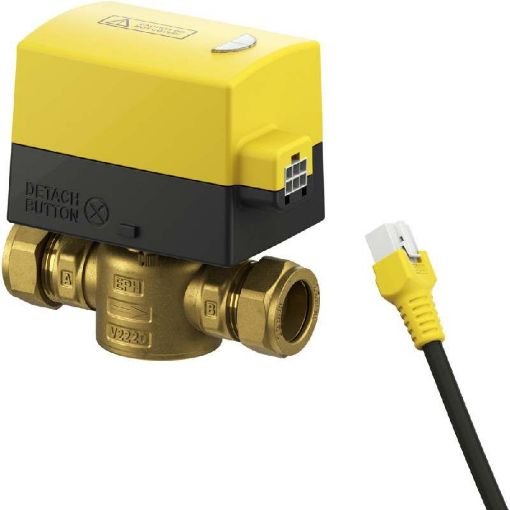The Banshee Boilers Blog
Explaining your heating system in clear, simple terms.

Every Part of Your Heat Pump System, Explained in Simple Terms
At Banshee Boilers, we want to help you understand your heat pump system. If you've recently purchased a new home, you might have received minimal information about your system or were simply advised "Don’t touch it." You're not alone in this. These systems are often misunderstood, and with widespread misinformation and unsolicited advice from neighborhood message groups, it can feel quite overwhelming. In this guide, we’ll explain every component of your heat pump in straightforward terms.

Motorised Valves
Motorised valves are common in newer heating systems. These valves open and close when they receive electrical signals and allow or prevent the flow of water.
When they start to wear out and fail, you may notice inconsistent temperature control, intermittent flow errors or unusual noises.

Potable Expansion Vessel
If you are wondering “Why is my heating system banging or groaning when I turn on water? And how can I tell if my expansion vessel is waterlogged?” look no further
We are finding waterlogged potable expansion vessels are a common issue in newer homes with Booster Pumps. Repressurizing or replacing the vessel ensures your heating system runs efficiently and safely.

Heat Pump Glycol Antifreeze
A common problem we find in heat pump systems is insufficient Glycol Antifreeze. Here we answer some of the most common questions about Glycol Antifreeze in air to water Heat Pump System, including “What happens if my glycol levels are too low? And how much antifreeze should be in my heating system?”
Ensuring that the glycol antifreeze levels align with the manufacturer’s guidelines helps your heating system run safely and efficiently during the colder months.
